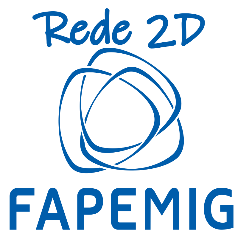Abstract:
Abstract The Raman spectra of graphene-based matter exhibit a set of defect/disorder-induced bands. The D band, which exhibits a strong dispersion up to 50 cm−1/eV, comes from transverse optical phonons around K or K′ in the first Brillouin zone and involves an intervalley double resonance (DR) Raman process. In the present work, resonant Raman scattering (lines ranging from 1.58 to 3.81 eV) is used to study the unusual behavior of the one-phonon Raman band of a carbonaceous material (anthracene-based carbon which is one of the graphitizable carbons) upon its secondary carbonization stage (450°C–1000°C). While the G band appears to be nondispersive, the D band exhibits a change in both position and intensity. Its dispersion progressively rises from 6 cm−1/eV to values close to what is usually observed in defected graphene-based systems when anthracene-based carbon becomes almost pure. This evolution appears to be correlated with a release of hydrogen (fixed on the edges of polyaromatic layers) questioning their role in changing the D band resonance conditions.